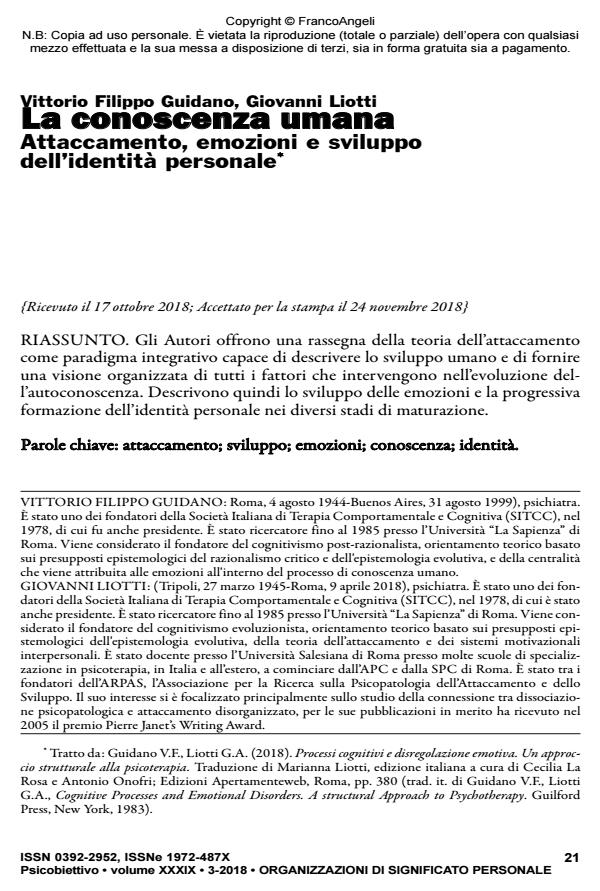Human knowledge. Attachment, emotions and development of personal identity
Journal title PSICOBIETTIVO
Author/s Vittorio Filippo Guidano, Giovanni Liotti
Publishing Year 2018 Issue 2018/3
Language Italian Pages 14 P. 21-34 File size 124 KB
DOI 10.3280/PSOB2018-003002
DOI is like a bar code for intellectual property: to have more infomation
click here
Below, you can see the article first page
If you want to buy this article in PDF format, you can do it, following the instructions to buy download credits

FrancoAngeli is member of Publishers International Linking Association, Inc (PILA), a not-for-profit association which run the CrossRef service enabling links to and from online scholarly content.
The authors review the attachment theory considering it as an integrative paradigm capable of describing the human development and capable to provide an organized vision of all the factors that intervene in the evolution of selfknowledge. Therefore they describe the development of emotions and the progressive development of personal identity during the different maturity stages.
Keywords: Attachment; Development; Emotions; Knowledge; Identity
Vittorio Filippo Guidano, Giovanni Liotti, La conoscenza umana. Attaccamento, emozioni e sviluppo dell’identità personale in "PSICOBIETTIVO" 3/2018, pp 21-34, DOI: 10.3280/PSOB2018-003002